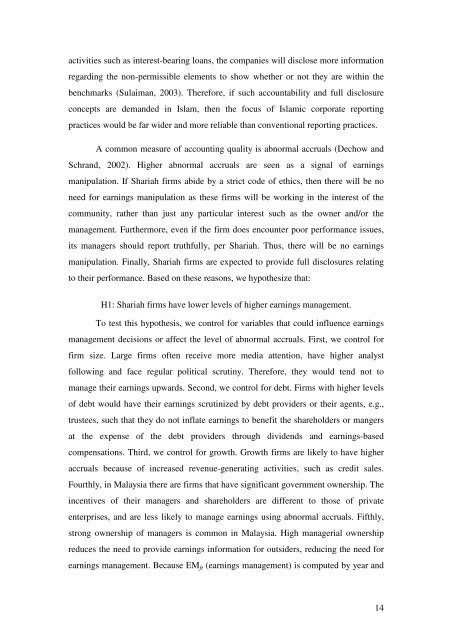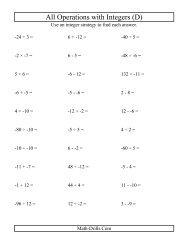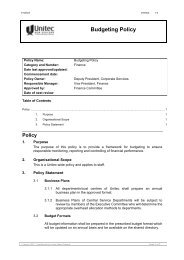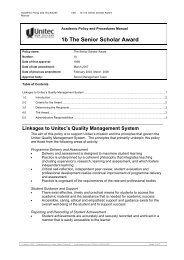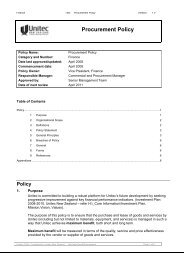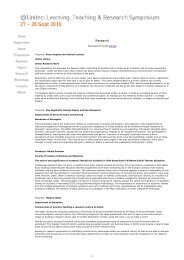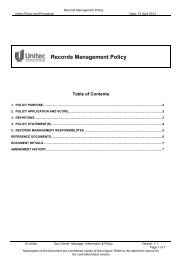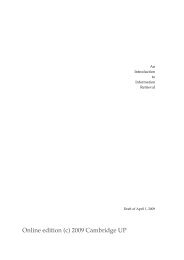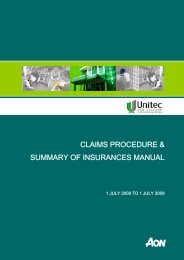RELIGION AND EARNINGS MANAGEMENT - Some ... - Unitec
RELIGION AND EARNINGS MANAGEMENT - Some ... - Unitec
RELIGION AND EARNINGS MANAGEMENT - Some ... - Unitec
Create successful ePaper yourself
Turn your PDF publications into a flip-book with our unique Google optimized e-Paper software.
activities such as interest-bearing loans, the companies will disclose more information<br />
regarding the non-permissible elements to show whether or not they are within the<br />
benchmarks (Sulaiman, 2003). Therefore, if such accountability and full disclosure<br />
concepts are demanded in Islam, then the focus of Islamic corporate reporting<br />
practices would be far wider and more reliable than conventional reporting practices.<br />
A common measure of accounting quality is abnormal accruals (Dechow and<br />
Schrand, 2002). Higher abnormal accruals are seen as a signal of earnings<br />
manipulation. If Shariah firms abide by a strict code of ethics, then there will be no<br />
need for earnings manipulation as these firms will be working in the interest of the<br />
community, rather than just any particular interest such as the owner and/or the<br />
management. Furthermore, even if the firm does encounter poor performance issues,<br />
its managers should report truthfully, per Shariah. Thus, there will be no earnings<br />
manipulation. Finally, Shariah firms are expected to provide full disclosures relating<br />
to their performance. Based on these reasons, we hypothesize that:<br />
H1: Shariah firms have lower levels of higher earnings management.<br />
To test this hypothesis, we control for variables that could influence earnings<br />
management decisions or affect the level of abnormal accruals. First, we control for<br />
firm size. Large firms often receive more media attention, have higher analyst<br />
following and face regular political scrutiny. Therefore, they would tend not to<br />
manage their earnings upwards. Second, we control for debt. Firms with higher levels<br />
of debt would have their earnings scrutinized by debt providers or their agents, e.g.,<br />
trustees, such that they do not inflate earnings to benefit the shareholders or mangers<br />
at the expense of the debt providers through dividends and earnings-based<br />
compensations. Third, we control for growth. Growth firms are likely to have higher<br />
accruals because of increased revenue-generating activities, such as credit sales.<br />
Fourthly, in Malaysia there are firms that have significant government ownership. The<br />
incentives of their managers and shareholders are different to those of private<br />
enterprises, and are less likely to manage earnings using abnormal accruals. Fifthly,<br />
strong ownership of managers is common in Malaysia. High managerial ownership<br />
reduces the need to provide earnings information for outsiders, reducing the need for<br />
earnings management. Because EM ft (earnings management) is computed by year and<br />
14


